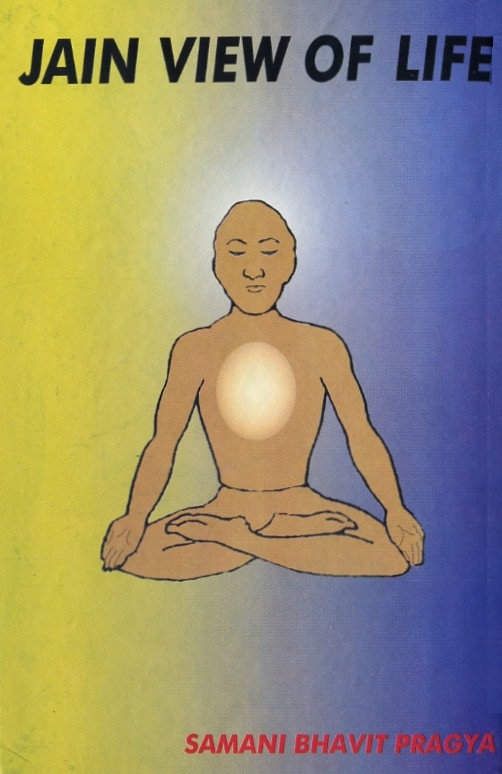How to Over Come Anger
In a town called Avanti Nagari there lived a man known as a Shreshti Dhana. He had eight sons, and finally he had a daughter. His daughter was named Atungakari Bhatta. As she was born after eight sons, everyone loved her very much. This made her very proud of herself as well as aggressive. In her adulthood, Atungakari Bhatta announced that she would only marry someone who would obey her all the time, and do whatever she said. Many years passed. Atungakari Bhatta could not find a Husband according to her terms. Finally, there was King Jitushatru's minister called Subuddhi who agreed to marry her. Atungakari Bhatta told her husband, no matter how involve or busy you become in your work, you have to come back home at nine O'clock every day.
One day, Subuddhi was discussing matters with the King. He lost track of time. By the time that he reached home it was over twelve O'clock at midnight. His wife was very angry with him 'for disobeying her orders. Subuddhi apologized for coming home late but his wife would not forgive him. In anger, Atungakari Bhatta left the house at night and went towards the forest. In the forest she was captured by a group of thieves. They gave her to their leader. Seeing her, the leader wanted to marry her. As she was already married, she said no to him. The chief leader then sold her to a blood seller. The Blood seller took blood from all over her body, which made her very weak and thin.
Due to all the pain that she underwent, her heart changed. She realized all the wrong doings she did due to her anger. She renounced her anger and became a forgiving person. Meanwhile her brothers had been looking for her and finally one of them found her with blood seller. Her brother paid the money to the blood seller and brought her back home. Each and every one praised her forgiving nature. The leader of the Gods, Indra, was praising Atungakari Bhatta's forgiveness in front of all other Gods and Goddesses, one of them decided to test her to see if she did not get angry anymore. God took form as a monk and went to her house.
The god went Atungakari Bhatta and asked her for some Laxshapak Oil which is very valuable and costly. She brought in a pitcher full of oil and suddenly it broke. She went back to the store and got another pitcher. Again it brok.. She still showed no anger. Atungakari Bhatta brought out a third pitcher and this also broke suddenly due to the powers of God. In all situations, she remained calm and peaceful. Then the monk showed his true form as a God. The god asked for forgiveness from her for testing her.
As Atungakari Bhatta lost her temper and was angry at her husband for coming home after nine o'clock, she went to the forest where she was captured by thieves who then sold her to a blood seller, who put her through a lot of pain. Atungakari Bhatta suffered a lot of pain due to her anger. If she was not angry at the time and was forgiving, she would not have suffered all these sufferings.
Effects of Anger
"Fire burns the outside of objects, but anger burns and destroys the inside characteristics of the soul such as knowledge, energy etc." "Then it burns others, but not always. If someone is a forgiving person, he cannot burn himself, like a wet tree. Anger destroys politeness, wisdom and paralyses the power of mind and reason. On account of anger, the angry man's blood boils and he loses his physical and mental health as well. And angry man doesn't listen to suggestions or advice of others. Advice only serves to intensify anger. One minute of anger destroys nine hours of works energy. Anger is harmful in any situation.
Lord Mahavira said "Anger destroys Love"
Due to anger, the sympathetic branch of the ANS is activated; in turn it stimulates levels of adrenaline and noradrenaline (the stress hormones). These are also associated with sympathetic changes such as increased blood sugar level, increased heart rate and blood pressure, increased blood flow to the muscles and decreased GSR (the fight or flight syndrome). There is a decrease in sympathetic activity, a lower rate of adrenaline and not enough adrenaline output, but increase in output from the other part of the adrenal gland and the adrenal cortex. The adrenal cortex is controlled by the amount of ACTH (adrenocorticotrophic hormone). ACTH is released form the exterior pituitary upon instructions from the hypothalamus. The adrenal cortex is essential for the maintenance of life and its removal results in death. The effect of ACTH is to stimulate the adrenal cortex to release corticosteroids. One group of which are the glucocorticoid hormones. These hormones control and converse the amount of glucose which helps to resists stress of all kinds. The anterior pituitary-adrenal cortex system is contributing to the fight or flight syndrome.
Anger reduces the immune system's ability. Goetsch and Fuller (1995) refer to studies regarding anger that show decreases in the activity of lymphocytes, natural killer cells (a particular type of white blood cells) which normally fights viruses and cancer cells.
A person frequently confronts life threatening dangers. Stress produces an increase in blood cholesterol levels, leading to clots in the blood and in the artery walls and constriction of the arteries. In turn, raised heart rate is related to a more rapid build-up of cholesterol on the artery walls causing heart attack, strokes and high blood pressure.
At this stage psychophysiological disorders develop including high blood pressure (hypertension), heart diseases (coronary artery disease) (CAD), coronary heart disease (CHD) asthma and peptic (stomach) ulcers.
If the source of stress is removed as a result, blood sugar levels will gradually return to normal. If the stress situations continue, higher brain centers will override the negative feedback the system and maintain the pituitary adrenal excitation. The body's resources become depleted. The adrenals can no longer function properly.
Process of Removing Anger
Firstly, anyone who wants to remove anger, must think that anger is bad.
Secondly, they must think, "I want to be anger free".
Thirdly, they must think, "I should practice special techniques to be free from anger".
Aspects to be Free from Anger
1. Before sleeping, close your eyes, sit straight and think, from the morning to the evening how many times I got angry and why? Then ask yourself, was it a low, medium or high level of anger? Could I have lived without anger? Could I have done this without anger? Condemn yourself and say you will not do it and get angry tomorrow.
Then say Namokar Mantra to make your mind empty. To stop your thoughts, breathe deeply and then go to sleep. After waking recite the Namokar Mantra and make resolution of being free from anger the whole day.
- Do meditation for fifteen minutes. Whilst inhaling, think that the feeling of peacefulness is strengthening inside me. Whilst exhaling, think that the impression of anger is leaving my body. After this, for five minutes concentrate your mind on the center of enlightenment, which is situated in the middle of the forehead and perceive the full moon on that center and feel coolness, lightness and peacefulness.
- When you feel anger coming, leave the place you are and go anywhere else and do a deep breathing exercise. If you cannot leave, stay silent for fifteen minutes or holding breath, do deep breathing exercise. If you are angry, count up to ten but if it is intense then count to one hundred. This diversion will reduce anger and stress.
- Remember and think of peaceful people like Acharya Maghava, or Saint Tukaram.
To pacify anger you should observe forgiveness, as it is the best instrument for keeping the soul free from anger.
 Samani Bhavit Pragya
Samani Bhavit Pragya
